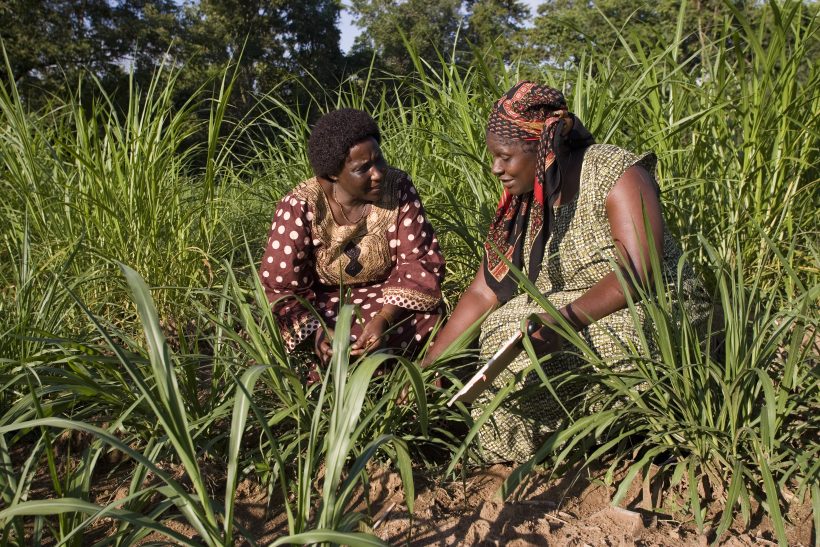
As of 2021, about 828 million people in the world are facing hunger, and reports indicate that 50 million of this face chronic hunger. While there had been promising progress in reducing global hunger and malnutrition, the COVID-19 pandemic dealt a major setback, pushing an additional 150 million people into hunger and plunging the world into a worse situation as the number of undernourished people increased, compounded by climate change and conflict.
In Africa, there’s already significant evidence of the severe impacts of climate change and the pandemic. This has further pushed back concentrated efforts around ending hunger by 2030. Across the region, women smallholders bear the brunt, experiencing more negative impacts than men.
On the bright side, the current crisis has brought renewed energy by governments, private and public sectors, and other agricultural value chain actors to call for urgent transformation of our food systems.
Amidst these conversations is the increasing need to provide more gender-responsive strategies and policies capable of building equitable agri-food systems and climate resilience.
This month, our top ten reads present expert articles, opinions, and recommendations on the potential opportunities of integrating gender in building back better.
We Must Give Women a Chance to Build Back a Better Food System
In this opinion piece for CNBC Africa, UN Special Envoy Dr. Agnes Kalibata explains why bolstering women’s role in the food system and supporting them as change agents can have broad and lasting benefits for our communities and environment.
Building Back Better: The Importance of Gender Inclusion
This article examines the gaps in our socio-economic structures that expose us to the pandemic’s vulnerabilities while providing adaptative recommendations for improving social protection strategies.
Equitable Food Systems Need Equitable Science
More women in research and leadership roles mean more scientific knowledge, skills, and experience – giving the world a fighting chance to build resilience against inequality. This article outlines the importance of ensuring the representation of women in science to strengthen research and innovation in our food systems.
Agricultural Policy Actions for Building Back Better: A COVID-19 Mitigation Supportive Mechanism
In this report, Dr. Apollos Nwafor, AGRA’s Vice President, Policy and State Capability, outlines the recommendations policymakers must identify to mitigate the effects of the pandemic on food systems if the continent is to make headway in the first Sustainable Development Goal (SDG) of ending hunger while leaving no one behind.
This paper puts forward three critical recommendations for establishing inclusive, sustainable, and resilient food systems, including ensuring a more robust gender lens in food systems and food security paradigms; supporting alternative strategies to agriculture as a means of livelihood for women; and putting women at the center of food security solutions by building on their resilience, knowledge, and practices.
Women’s Empowerment in Agriculture is Essential to COVID-19 Survival and Recovery
This article examines the complex relations between gender and the impacts of COVID-19 and the importance of integrating women’s empowerment interventions into survival and recovery measures.
Gender-Equitable Pathways to Achieving Sustainable Agricultural Intensification
Women play an increasingly more significant role in agriculture. Ensuring that they have opportunities to participate in transforming Africa’s agriculture is a prerequisite for sustainable intensification. Read about some of the best practices in promoting gender equity in social, agroecological, and economic contexts.
Is Empowering Women in Agricultural Development Projects Worth the Investment? Yes, When Done Right
As evidenced by numerous research and interventions, it is clear that we are still learning what works best to empower women and how that works to achieve desired development outcomes. This article spotlights the impact of women empowerment programs that go beyond the goal of gender equality for its own sake.
Why We Must Build Climate Resilience with Women in Africa
In Africa, women play a significant role in subsistence agriculture, yet they are the most vulnerable to the shocks of natural disasters. This article highlights the importance of integrating gender equity strategies and policies in climate change mitigation and adaptation to ensure women and girls are no longer disproportionately affected.
This paper provides a comprehensive literature review on gender equality and agriculture under climate change. It presents new opportunities and approaches that need to be tested, replicated, and scaled to accelerate climate resilience.
How to Put Women at the Centre of Africa’s Food Systems
Empowering women is one of the critical factors in addressing the challenges of Africa’s food security. This study proposes priority actions for policymakers to empower women to participate effectively in the food system, thereby eradicating hunger.
